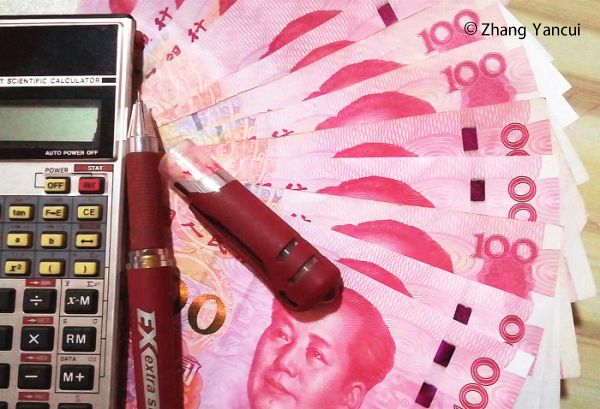7 Things Easily Overlooked When Doing Business in China
Foreign companies have shown great interest in China’s economic growth in the last decennia, which has steadily enhanced that country’s appeal for foreign investment. Although China provides many opportunities for foreign businesses, its sheer complexity, regulations, and constant changes make it difficult to keep track of what is recommended and required when doing business in mainland China.
In my experience working at MS Advisory in Shanghai, I have noticed certain issues or challenges facing foreign businesses resurface many times, such as legal issues, general compliance and tax concerns. To provide a good overview of these important difficulties to take into account when doing business in China, I have prepared a list of 7 things which foreign companies might have overlooked, or did not think through before starting a new business venture in China.
1. Business Scope
The business scope, or the range of activities a firm in China is legally allowed to perform, is listed on every company’s business license. Defining the business scope is done at the beginning of the registration process. It is a very delicate moment during the registration of an entity, as the business scope defines which types of business activities a company can engage in and must be approved by the Chinese State Administration of Industry and Commerce.
Since 28 July 2018, the Negative List has replaced the Catalogue for Foreign Investment which divides the business scope of foreign investment in certain industries either as prohibited or restricted. Foreign investors should be given equal treatment to domestic (Chinese) investments in industries not included in the list.
What companies usually ignore – or tend to forget – is that they can only pursue business activities listed on their approved business scope. Non-compliance with the business scope can result in a financial penalty, a fine of up to one year’s revenue.
Also, the type of company is listed differently in China, according to the business scope of activities. There are three company types:
- Consulting
- Trading
- Manufacturing
Each company type has different requirements for setting it up. As a trading company is engaged in trading, it usually needs to apply for an import/export license and will consequently be registered at customs. For a manufacturing WFOE (Wholly Foreign-Owned Enterprise), one needs to have a factory space in an approved zone, where it is for example impossible for a manufacturing WFOE to register in the centre of (large) cities in China. An additional requirement for this type of WFOE is to complete an environmental impact assessment (EPA).
Both domestic companies as well as foreign invested enterprises (FIE), such as WFOEs and joint ventures (JVs) are restricted to their business scope. A Representative Office (RO) in China can only represent the headquarters of a foreign company and is restricted to conducting marketing and research activities solely for its headquarters.
2. Trademark Registration
When doing business in China or even considering doing business in China, you must not forget to register your trademarks. These are only safeguarded with a trademark registration within China, and cannot be used by other Chinese companies. In case of infringement, you will need strong evidence to take Chinese companies to court.
Trademark registration in China is based on a ‘first-come, first serve’ principle. In essence, this implies that regulatory authorities will not verify whether applicants own a brand or trademark overseas. However, from the moment you start the application process, no other company may register your trademarks. Foreign trademark owners can only register a trademark at the Trademark Office of the Administration for Industry and Commerce, and such a registration may take up to 12 or 18 months.
Apple for example failed to register one of their trademarks on time. They forgot to register their ‘IPHONE’ trademark in all categories, which allowed a Chinese company to register the IPHONE trademark for leather bags and accessories before IPHONE became a popular brand. The registration of trademarks is usually inexpensive, yet negligence and purchasing trademarks back from other companies can prove very costly. Therefore, it is recommended to consult intellectual property (IP) law professionals to file your trademark registration.

3. Compliance in Hong Kong
Many organisations still use a Hong Kong Limited to enter the Chinese market. Even if not directly involved in your Chinese operations, it is still important for an entity to comply with the Companies Ordinance of Hong Kong registration laws and remain operational. Keeping the Hong Kong Limited up to date implies yearly renewals, which go side by side with the annual audit. Usually, organisations have agents performing these mandatory filings.
When a company is late in filing a renewal, it receives a fine. After filing late twice, the company might be called to appear before a judge in a Hong Kong court and seen as non-compliant. These are the yearly requirements for Hong Kong audits and inspections:
• Annual inspection
• Renewal of the Business certificate from the tax bureau
• Renewal of the annual office in the Hong Kong Companies Registry
• (Zero) tax declaration to the Inland Revenue Department
• Filing the annual return form with the Companies Registry
4. Custody of Company Chops
The company chops (company seals or stamps) are crucial to every Chinese company and setting up a business in China. The management or administrative teams of a company can use chops to legally authorise documents. Any official company documents, such as consulting agreements, labour contracts, and termination letters, are not legally valid if they are simply signed by an individual such as the CEO or General Manager. They must additionally be chopped with the relevant chop. Every company has several chops, each with a unique purpose. The most important ones are listed below:
• Company Chop
• Legal Representative Chop
• Invoice Chop
• Finance Chop
• Customs Chop
• Contract Chop
Since a chopped document is legally binding, any person who has physical access to the chops can effectively take legally binding decisions in China on behalf of the company. Upon losing any of official chops, a company may face legal risks and needs to go through an extensive process to obtain new stamps. For these two reasons many companies use a stamp sheet to indicate when a specific chop was used and for what purpose.
5. Chinese Labour Contracts
Some companies are lenient with renewing or executing new labour contracts, as both employer and employee trust each other. However, it is advisable to have all labour contracts in valid order. In general, the second renewal (i.e. the third signed contract) is an open-term employment contract. If the employer and employee do not sign the second or third labour contract after the term of the previous contract has expired, the company may face legal risks. More specifically, an employee who is working for a longer period of time without an employment contract may be entitled to receive double wages for the length of that period, and also an open-ended contract.
For the above-mentioned reasons, it is important to carefully consider the employment contract length when a new employee is hired. For different contract lengths, different probation periods are applicable. For example, a probationary period of six months could apply to a three-year contract, in contrast with a maximum period of one month for a one-year contract. Opting for a longer initial labour contract also delays the onset of the open-ended term.
Moreover, it is also recommended that all Chinese company owners have an employee manual (or the company’s Rules & Regulations) signed by every employee. The employee manual needs to be tailored to Chinese labour laws, and it cannot just be a literal translation from your original employee manual (if applicable) (China Law Blog, 2016). If there are any amendments to the manual, all employees must read and sign the updated document of company rules and regulations.

6. IIT for Expatriates
It is relatively straightforward to determine and calculate the individual income tax (IIT) for local Chinese employees. All local employees can only be paid via a local company in China, and the IIT will be calculated on all (worldwide) income received.
For expatriates, it can be more complicated to determine the effective tax rate as it depends on their residency status. Whether expatriates need to pay tax in their home country while in China, whether they are considered residents or non-residents for tax purposes, or whether they are required to pay tax on their worldwide income is an increasingly complex matter.
The recent amendment to the PRC Individual Income Tax Law adopted by the National People’s Congress of China on August 31, 2018, attempts to ease the tax burden for low-income earners and take a tougher stance towards high-income earners, including expatriates. As a result of the amendments, standard deductions and deductible expenses will increase, income tax brackets will be adjusted, taxable income categories will be simplified, the tax residence rule will be updated, and new clauses for anti-tax avoidance will be introduced.
Due to these complexities and recent changes to China’s IIT Law, it may be recommendable to seek the assistance of a tax professional to asses one’s personal income tax situation and assess how much tax and social security you would be required to pay.

7. Who is Managing Your Bank Account?
Who has the authorisation to use your bank account in China and what procedure do you use within your company to manage this accordingly? Internal control processes for foreign companies are vital to have control over your subsidiary and its activities.
Most banks in China offer the use of a USB token device to prepare and approve payments. Since most Internet Banking systems of Chinese banks are also available in the English language, it is certainly possible to have a legal representative or authorised person within or outside of China to manage this effectively. Although this creates an additional layer in your financial operations, this layer helps safeguard your financial interests in China.
Conclusion
By discussing these 7 points I have merely scratched the surface. Being compliant in China, just like in any other country, is an endless effort. Continuously keeping track of your organisation, rules and regulations, taxes, audits, and ongoing changes in China requires dedication and meticulous study.
As mentioned before, the points discussed in this article are based on my personal experiences and the knowledge I have gained at MS Advisory (part of Moore Stephens International) as well as materials from 1421 Consulting Group. If you would like to read the original articles and other content on which this article is based, please feel free to have a look here.

 Share on Facebook
Share on Facebook Share on Twitter
Share on Twitter Share on LinkedIn
Share on LinkedIn